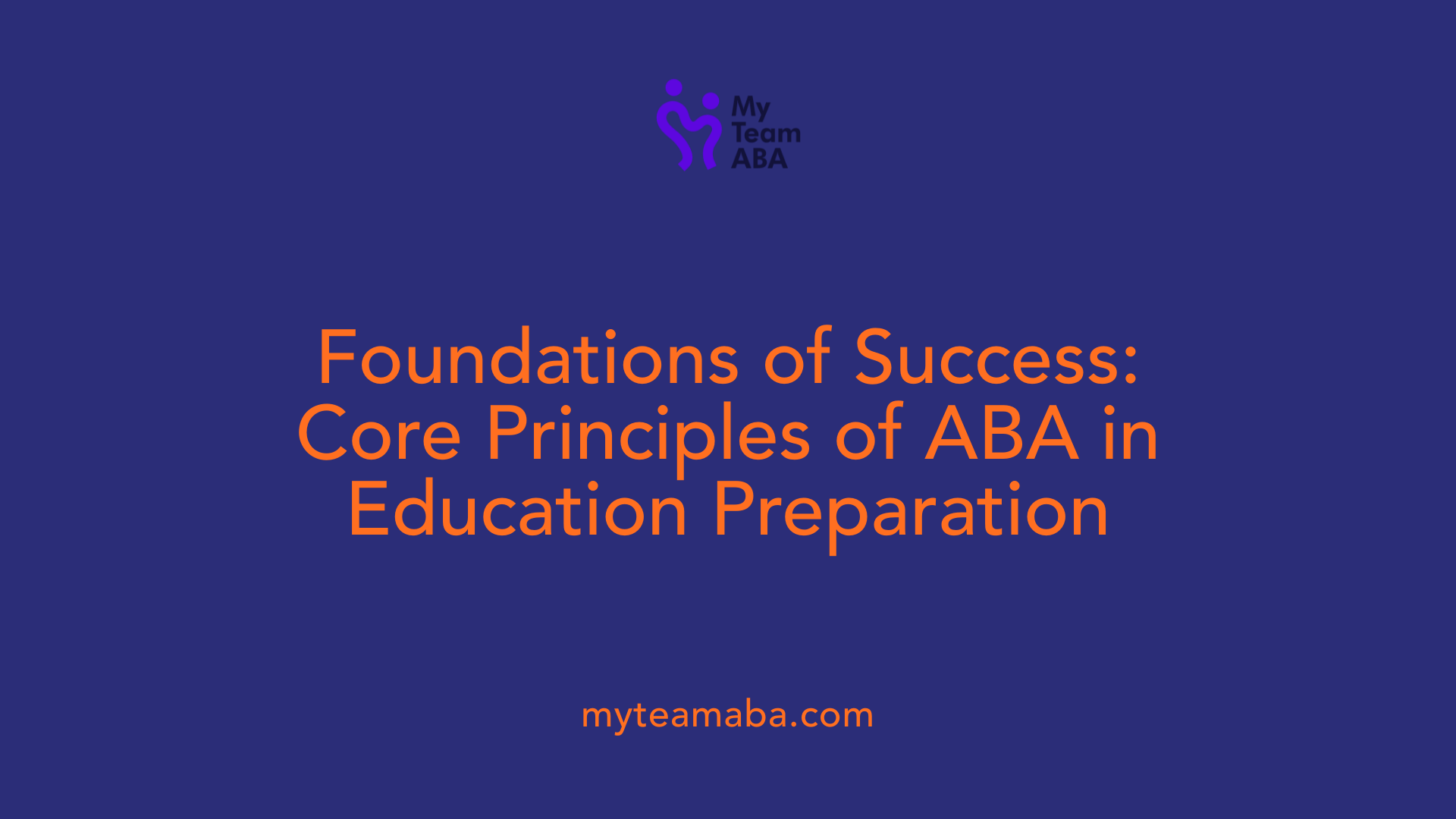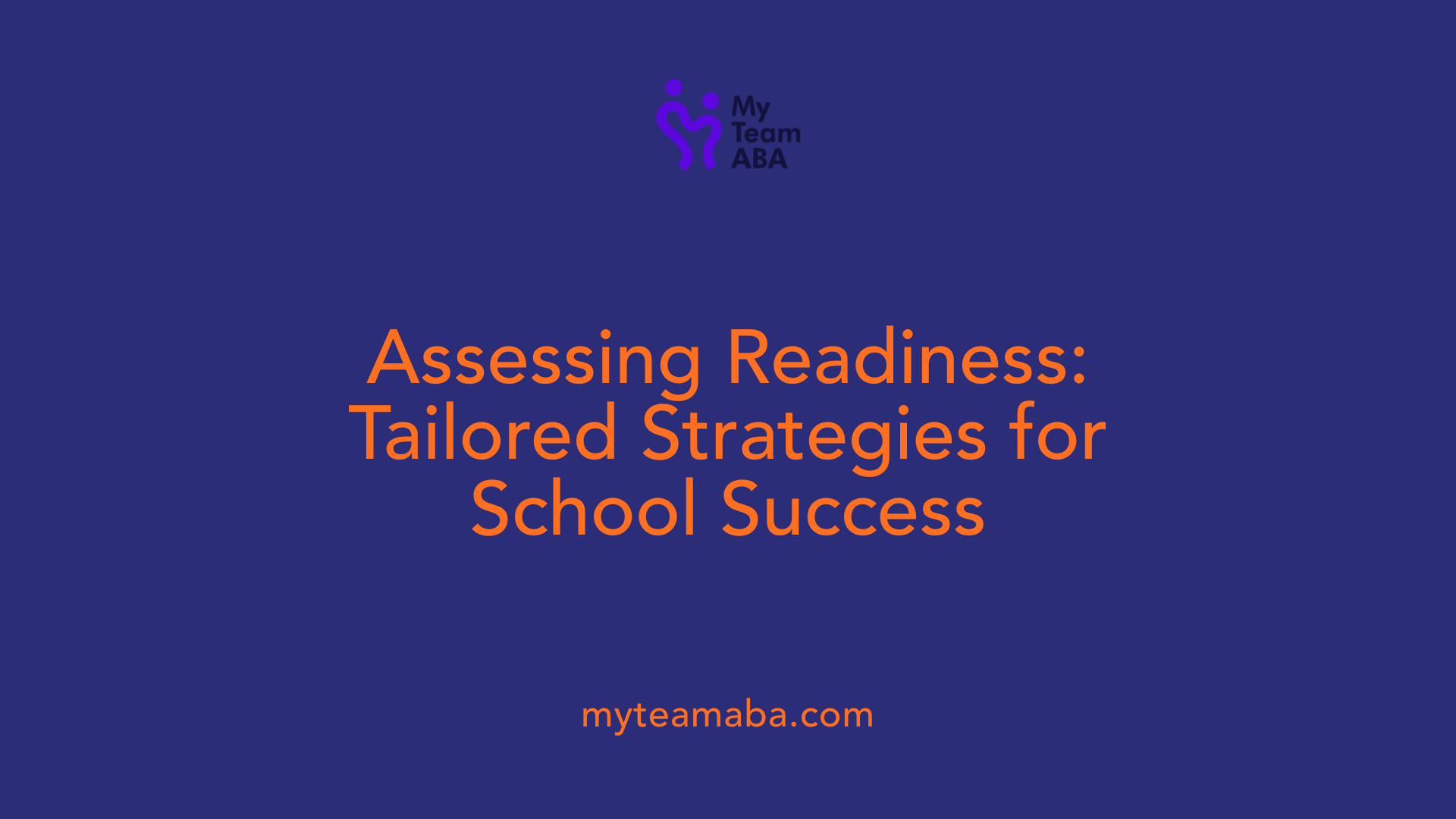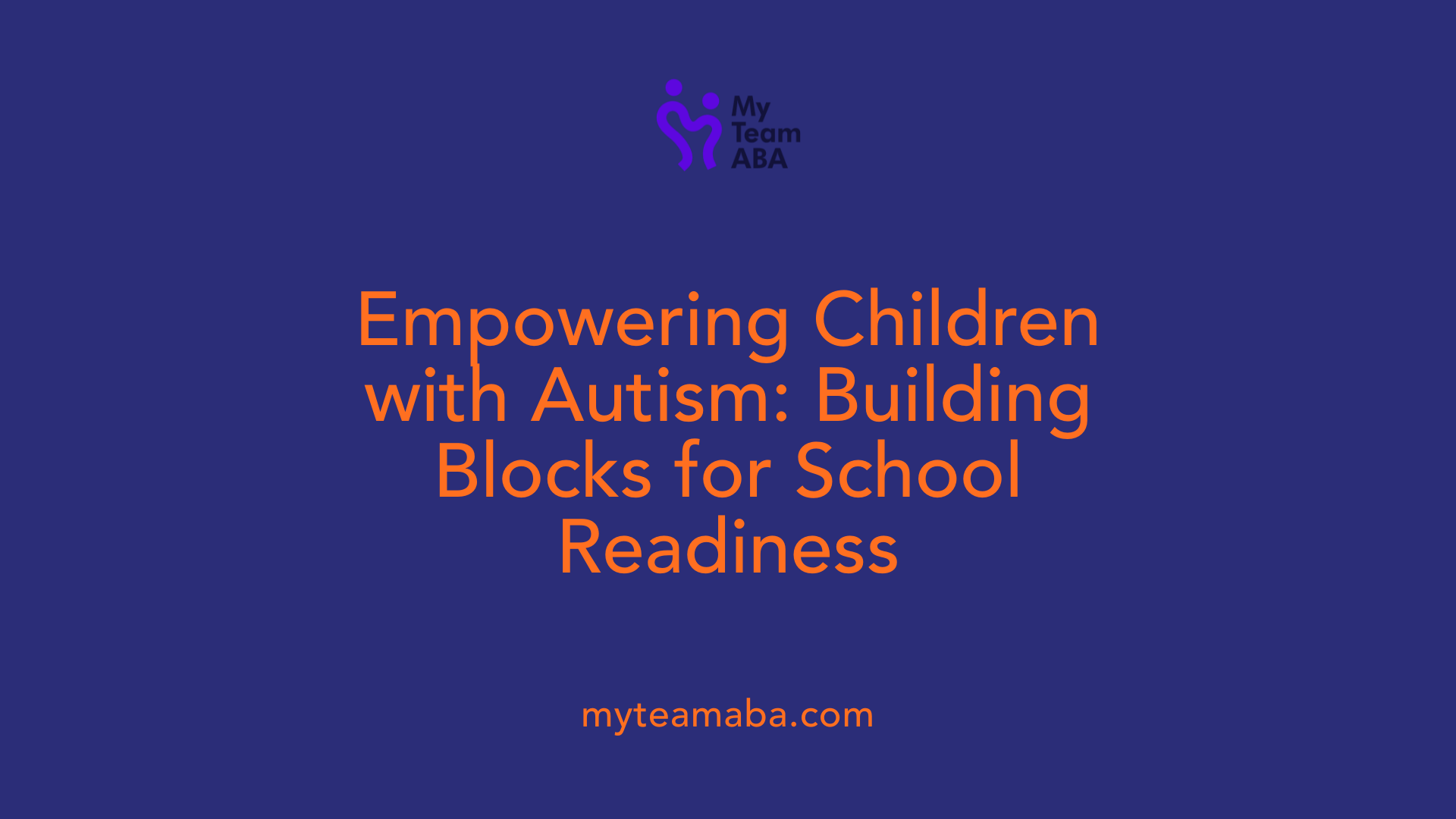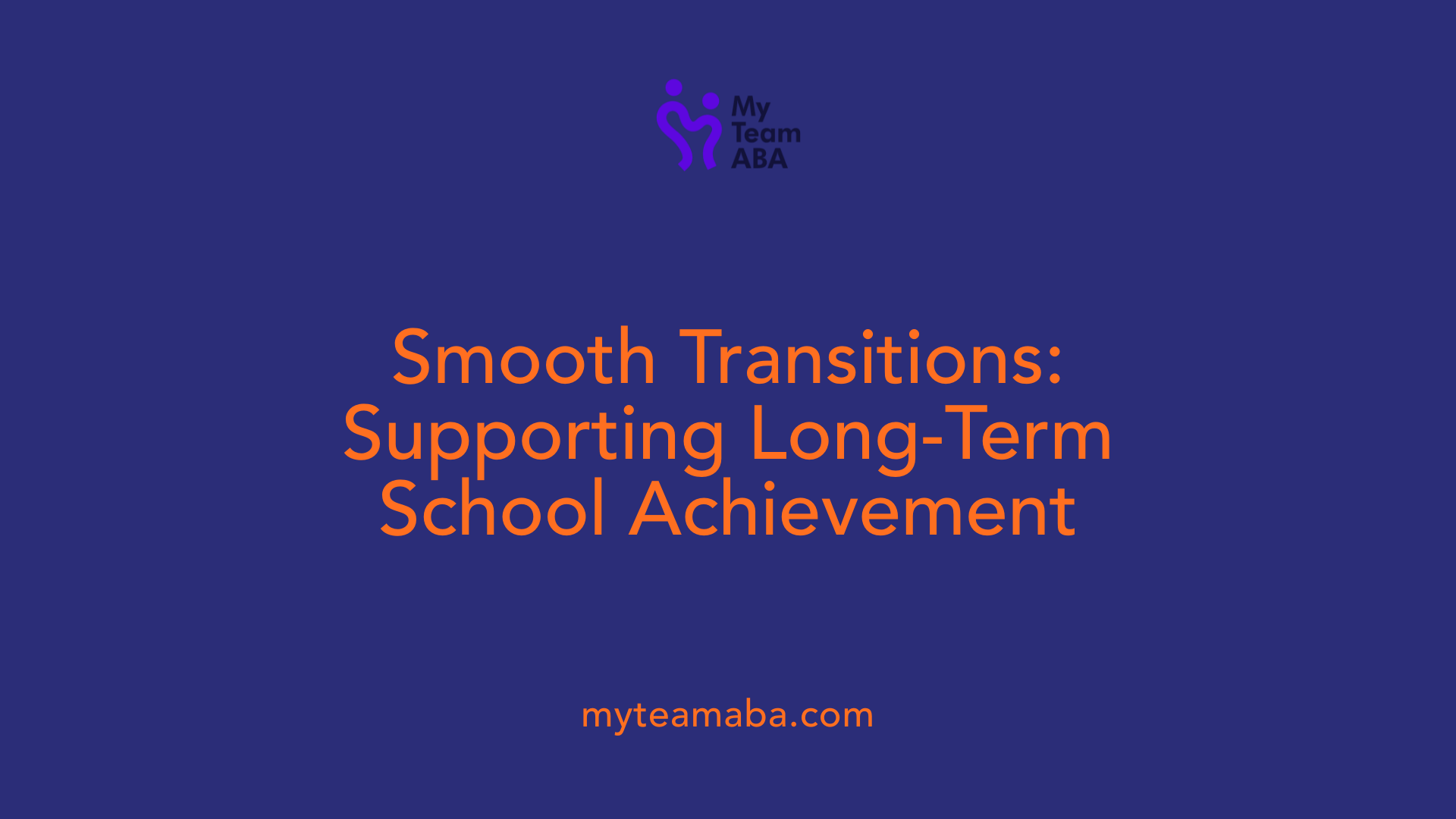How ABA Therapy Supports School Readiness
August 1, 2025
Empowering Children for Success in School Through ABA Therapy

Building Foundations for Educational Success
Applied Behavior Analysis (ABA) therapy is a powerful, evidence-based intervention that supports children, especially those on the autism spectrum, in developing the skills necessary for a successful and smooth transition into school environments. By focusing on individualized strategies that promote communication, social skills, self-regulation, and academic readiness, ABA prepares children to navigate their educational journeys with confidence and independence.
How ABA Therapy Supports Children’s Development and School Readiness
How does ABA therapy support children's development and school readiness?
ABA therapy plays a crucial role in helping children prepare for school by focusing on developing vital skills needed for academic and social success. It promotes communication and social interaction skills, such as expressive language, understanding social cues, and engaging in cooperative play. These abilities are essential for building friendships and participating effectively in classroom activities.
In addition, ABA therapy strengthens attention span, self-regulation, and foundational academic skills like recognizing colors, numbers, and letters. It teaches children to follow routines, concentrate on tasks, and develop independent learning habits.
The approach involves analyzing behaviors to understand their functions through careful data collection. Therapists then use positive reinforcement to shape desirable behaviors and reduce challenging ones like aggression or non-compliance.
Programs are customized to each child's unique strengths and needs. This tailored approach ensures that skills such as turn-taking, problem-solving, and self-care are learned at an appropriate pace, improving overall readiness for school environments.
Ongoing assessments track progress and inform adjustments in goals. This data-driven method guarantees that the therapy remains effective and responsive to the child's development.
How does ABA therapy support children's development and school readiness?
| Skill Area | What It Includes | How It Helps Prepare for School |
|---|---|---|
| Communication Skills | Expressive/receptive language, conversation, listening | Facilitates understanding and sharing ideas in class |
| Social Interaction | Sharing, turn-taking, social cues, making friends | Builds teamwork and social competence |
| Attention and Self-Regulation | Focus, managing emotions, routines | Improves behavior and independence in learning |
| Academic Skills | Numbers, letters, basic writing, pre-reading skills | Sets the foundation for formal learning |
| Behavior Management | Reducing aggression, noncompliance, disruptive behaviors | Creates a supportive environment for learning |
By integrating real-world routines through inclusive, naturalistic activities, ABA therapy ensures that children aren’t just learning skills but are also applying them confidently in classroom settings. This targeted approach helps children transition smoothly into school life, setting them up for long-term educational success.
Core Principles of ABA Therapy in Preparing for School Environment

What are the core principles of ABA therapy related to preparing children for classroom and group learning environments?
Applied Behavior Analysis (ABA) therapy employs several fundamental principles aimed at preparing children for success in school settings.
First, personalized assessment and intervention are essential. Therapists evaluate each child's unique strengths and challenges, creating tailored strategies to enhance communication, social skills, and independence.
Reinforcement strategies play a central role. Positive reinforcement encourages desired behaviors—such as sharing or following instructions—while reducing behaviors like noncompliance that can disrupt learning.
ABA integrates both naturalistic and structured teaching methods. Naturalistic approaches use real-life scenarios and everyday activities, helping children generalize skills across different environments. Structured methods involve clear routines and deliberate skill-building exercises, mimicking classroom activities.
To ensure skills are effectively used beyond therapy sessions, ongoing data collection monitors progress. This continuous tracking allows therapists to adjust interventions and ensure skills are generalized across settings.
Early intervention is especially emphasized, as developing foundational skills—like imitation, attention, and basic communication—sets a strong base for future academic and social success.
Family and caregiver involvement is vital. Collaborating with parents and teachers ensures consistency and reinforces learning in all environments, supporting a smooth transition into school.
In summary, these core principles facilitate the development of communication, social interaction, and adaptive behaviors necessary for children to thrive in educational group settings, setting the stage for long-term success.
Using Assessments to Determine School Readiness in ABA Therapy

How are assessments used to determine a child's school readiness within ABA therapy?
Assessments play a crucial role in evaluating whether a child is prepared to succeed in a classroom setting. In ABA therapy, these evaluations are comprehensive and focus on key skills needed for school success, including communication, social interaction, behavior management, and academic understanding.
Therapists use various tools to gather data on a child's current abilities and challenges. This information helps in creating tailored intervention plans that address specific developmental needs. Regular assessments allow for monitoring progress over time, making it possible to adjust strategies as the child develops.
By measuring skills such as sharing, following instructions, verbal and nonverbal communication, and understanding classroom routines, assessments provide a clear picture of readiness. They also identify behavioral challenges that, if addressed early, can minimize disruptions. This continuous process ensures that children are gradually prepared for the academic and social demands of school environments.
Types of assessments used in ABA
Different tools and methods are employed, including:
- Observation checklists
- Standardized tests
- Functional Behavior Assessments (FBAs)
- Social skills screenings
- Communication inventories
Each assessment targets specific skill areas to offer a rounded view of a child's current capabilities.
How assessments measure communication, social, academic, and behavioral skills
Assessments examine a child's ability to:
- Receptively and expressively use language
- Engage in social interactions like sharing and taking turns
- Understand and use school-related concepts such as colors and numbers
- Follow routines and instructions
- Manage behaviors, including self-regulation and responding to challenges
Role of assessments in developing individualized plans
The detailed data gathered helps clinicians and educators design personalized ABA programs. These programs incorporate naturalistic and inclusive activities that promote skills in real-world classroom settings.
Monitoring progress and adjusting goals through ongoing assessments
As children learn and grow, ongoing assessments track improvements and highlight areas needing further support. This dynamic approach ensures intervention strategies remain aligned with the child's evolving needs, optimizing their readiness for school.
The Role of Autism in School Readiness and the Support Through ABA Therapy

How does autism impact a child's readiness for school, and how can ABA therapy help?
Autism can make school readiness more challenging by affecting essential skills like social interaction, communication, and emotional regulation. Children with autism might struggle to build relationships with classmates and teachers, which can hinder their ability to participate fully in group activities.
In addition, behavioral issues such as tantrums, rigidity, or difficulty adapting to routines can also interfere with learning. These challenges make it harder for children to engage in classroom activities and follow daily routines.
Applied Behavior Analysis (ABA) therapy plays a crucial role in supporting these children. This evidence-based approach targets enhancing communication, social skills, and self-regulation, while also decreasing problematic behaviors. Through tailored interventions, ABA helps children develop independence and confidence, preparing them for the school environment.
By teaching skills like sharing, taking turns, following instructions, and understanding classroom objects, ABA therapy creates a foundation for academic and social success. It also involves practicing classroom routines and pre-academic skills, making the transition smoother. Ultimately, ABA therapy equips children with autism to navigate school challenges effectively, fostering a positive and productive learning experience.
Enhancing School Transition and Long-Term Success with ABA

How can ABA programs facilitate a smooth transition into school environments?
ABA therapy plays a vital role in preparing children for successful entry into school settings. To ensure a seamless transition, these programs incorporate pre-transition planning strategies such as visiting future classrooms and familiarizing children with new routines. These visits help children acclimate to the new environment, reducing anxiety and unfamiliarity.
ABA programs focus on teaching essential skills that children will need in school, including following instructions, understanding classroom objects, and managing their emotions. Therapists work closely with parents and educators to create consistent routines across settings, which promotes generalization of skills.
By breaking down complex tasks into manageable steps, children gain confidence in their abilities. Skills like understanding social cues, participating in group activities, and self-regulation support their independence. This preparation not only eases emotional stress but also minimizes behavioral challenges often associated with transition periods.
Collaboration among therapists, parents, and teachers ensures that strategies are aligned and reinforced across environments. The combined effort helps children adapt more quickly, fostering confidence and readiness for their new school experience. Through targeted ABA interventions, children develop the skills necessary to navigate their new environments with independence, setting the stage for academic success and positive social interactions in the long run.
Benefits and Outcomes of ABA Therapy in Supporting School Success

What are the benefits and outcomes of ABA therapy in supporting children to succeed in school settings?
ABA therapy has been proven to improve both academic and social skills in children with ASD. Research shows that children who undergo ABA interventions often experience notable academic progress, such as understanding pre-reading skills, basic math, and writing, as well as social growth including sharing, taking turns, and making friends.
Beyond immediate classroom skills, ABA therapy offers long-term advantages. Children develop increased independence, better emotional regulation, and positive behavioral habits. These improvements help them participate actively in class, engage with peers, and manage challenging behaviors effectively.
Success stories from ABA programs underscore the importance of early and personalized intervention. Tailored strategies help children overcome specific challenges, fostering their confidence and potential for success in school environments.
Overall, ABA supports a child’s capacity to learn effectively, build relationships, and navigate social and behavioral expectations, paving the way for lifelong academic and personal growth. This holistic development is essential for helping children realize their full potential in academic settings.
Supporting Children’s Success Beyond the Classroom
ABA therapy not only prepares children for the immediate challenges of school but also lays the foundation for lifelong learning, social engagement, and independence. Collaborative efforts among therapists, families, and educators ensure that children develop the skills necessary to thrive in academic, social, and behavioral domains, leading to confident, capable learners ready to embrace their educational journeys.
References
- ABA Therapy and School Readiness - Inner Circle Autism Network
- How ABA Therapy Prepares Children for School Success
- Unit 1: Guide to Understanding ABA Therapy for School Readiness
- School Readiness - How to ABA
- Applied Behavior Analysis (ABA) | Autism Speaks
- ABA and other therapies | Autism Speaks
- Can ABA help a teen on the mildly affected end of the autism ...
- Expert Q&A: How ABA therapy can help with severe behaviors
